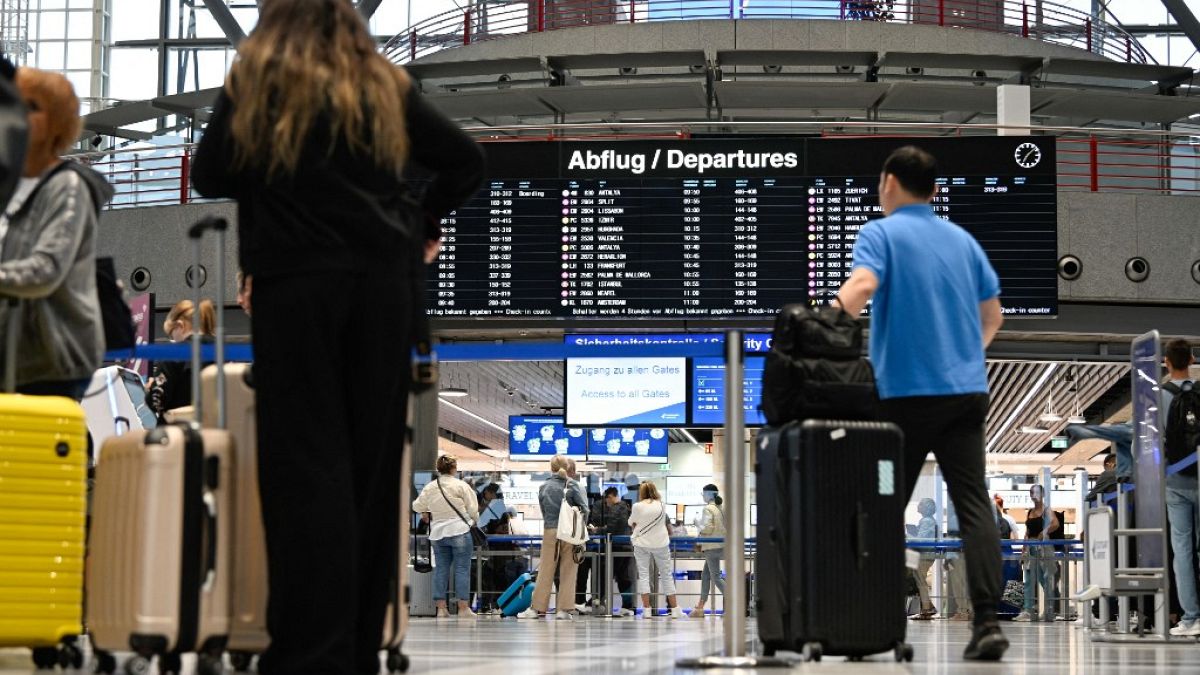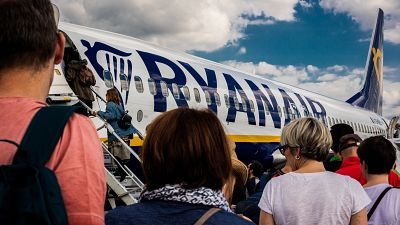Almost all flights are overbooked. Overselling tickets is legal, and the industry argues that passengers benefit from that practice.
Have you ever turned up to catch a flight that you’ve reserved and paid for weeks in advance, to find out it’s been overbooked?
You might wonder how on earth such a practice can be allowed, but overselling tickets is a legal practice, including in the European Union.
Airlines calculate the average number of passengers that may not turn up to a flight, and sell tickets accordingly.
But in the event of every ticket holder showing up, there aren’t enough seats, and some inevitably get bumped off the flight.
Many may understandably see the inherent unfairness here, but airline companies argue that such a situation is rare, and overbooking flights allows them to keep ticket prices affordable, while no-show passengers do not face legal repercussions.
Is this a win-win situation for both airlines and passengers?
In the European Union, compensation and rerouting must be provided to passengers, as per a 2004 regulation. Most airlines around the world have compensation schemes in place too.
But collateral losses such as a hotel room booked for a weekend getaway do not get reimbursed. Some would also argue that there’s no adequate compensation for bumped passengers who miss a birthday, wedding, or funeral.
Nevertheless, experts say that overbooking rarely leads to significant problems.
“While overbooking may sound like a risky practice to an ordinary person who may not have a deep understanding of the sector, it doesn't cause too many issues,” explained aviation industry specialist Alex Macheras.
He said the common practice in aviation works, as it is relatively rare for passengers to get bumped, considering that almost all flights are overbooked.
“Airlines are not simply overbooking flights by unrealistic numbers. They are booking on very specific proven data for that exact flight,” Macheras said.
For example, an airline can consider that very early flights see more no-shows, as some customers will inevitably sleep through their alarms, he said.
Understandably, passengers who get bumped off a flight might still struggle to see overbooking as an advantageous practice. "The real benefits might not always trickle down to the consumers, and the practice can cause significant inconvenience to passengers who get bumped off their flights", remarked Scott Welsch, from the website EU Flight Compensation.
Overbooking is part of airlines’ business model
It’s a practice not commonly seen in the world of business, but experts assure that it’s a normal facet of the way the aviation industry works.
“Airlines work on incredibly thin margins, making around $10 (€9) per economy class ticket,” said Macheras.
One of the strategies airlines use to remain profitable is dynamic airline pricing, reacting to supply and demand, with passengers paying different rates depending on when they purchase their tickets.
"Overbooking is indeed a part of many airlines' business models," says Welsch. "It's a risk management strategy that aims to ensure flights are as full as possible to maximize revenue."
It is part of the sector’s business model and allows airlines to keep fares affordable. If it became illegal, “fares would go up immediately, as airlines would not have that financial safety net anymore,” warned Macheras.
Although people experiencing firsthand being bumped off a flight will understandably perceive the practice as unfair, “on the bigger picture and with a greater understanding, it is a benefit for both the industry and for passengers,” according to Macheras.



